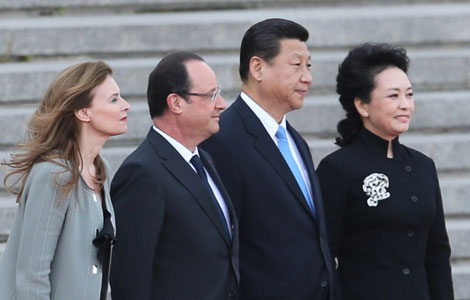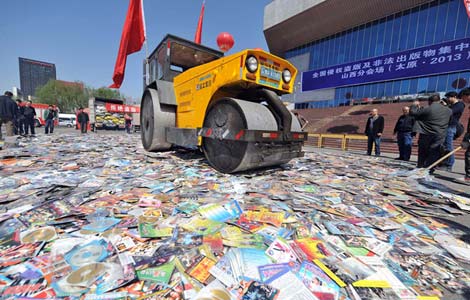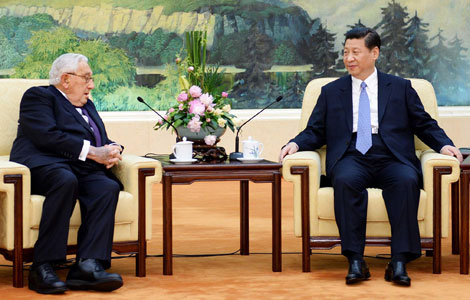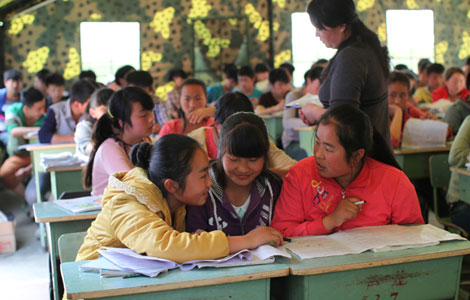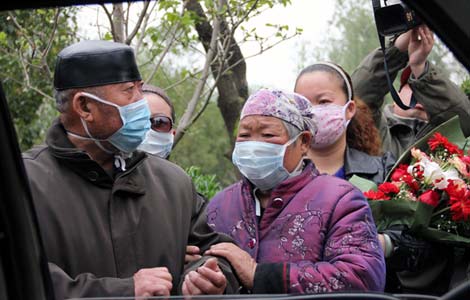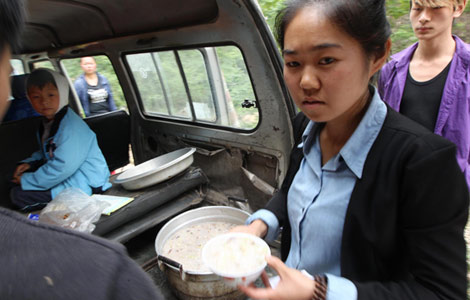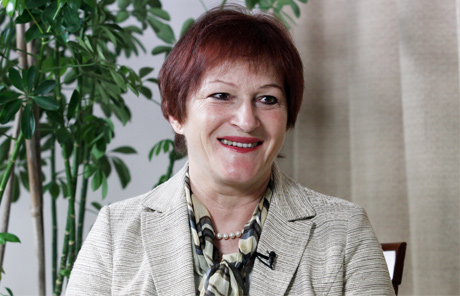Keeping the Chinese faith in the US
Updated: 2013-04-24 11:52
By Kaitlin Solimine (China Daily)
|
||||||||
I can't get Lu Lingzi, the young Chinese student killed during last Monday's Boston Marathon bombing, out of my head. I feel deeply for all the victims, but for some reason it's Lu's face, ethereal and half-smiling, hand poised to eat a strawberry sundae, that's been haunting me.
Perhaps it's because I know so many other young women like her who came to America seeking an education and an experience beyond what's possible in China. Perhaps it's because I know her parents, spoke with them on a bus in Shanghai or Shenyang. How proud they were, how many years they waited for their child to go to America - meiguo in Chinese, which means "beautiful country"- and how quickly their child adjusted to life in Boston, New York, Los Angeles. How their child became something greater than they'd imagined: independent, fearless, strong.
But Lu's death speaks to a growing problem: How can the United States remain a beacon of hope and opportunity for foreigners when such young, eager people are killed before they've had a chance to live their dreams?
In the past year, record numbers of Chinese students matriculated at US universities. According to the Institute of International Education, there were nearly 200,000 Chinese students in the US during the 2011-2012 academic year, a 23 percent increase from the year before and a 207 percent increase from a decade prior. Of all international students in the US, Chinese students comprise the largest segment.
Lu's story is representative of many Chinese students who come to the states. Their parents likely suffered the political turmoil of the "cultural revolution" (1966-76); like any parent, they simply wanted to give their children the best opportunities and education available. Lu herself looked self-assured, was described as "an exceptional student" and was a valuable member of Boston University's mathematics and statistics department.
A Chinese loss of faith in the safety of American streets and schools could spell far-reaching consequences. While many Chinese see the US' military complex as overly imperialistic, they still revere the nation's educational institutions and the society's ability to produce creative and entrepreneurial thinkers. What we've lost with Lu's death isn't just another tragic victim of terrorism. We've risked an entire country's faith in the US.
Last spring, the fatal shooting of two University of Southern California graduate students similarly shook the Chinese student population in the US. A USC undergrad who I befriended last year (and who prefers to remain anonymous) notes that before arriving in the states she believed the country was a very safe place. The USC murders deeply disturbed her, especially since they happened in a neighborhood in which many of her friends live. Most foreign students can't afford apartments in safer (read: more expensive) areas.
And yet, when it comes to the Boston bombings, my USC Chinese friend is less afraid than inspired. In an e-mail to me she wrote: "After the Boston bombings, countless citizens went to donate their blood and ran to the site to help people who got hurt. I'm moved by American people's altruism and optimism I appreciate the spirit of Americans; while Chinese people have this too, I still think there's a lot they can learn from the US."
Indeed, the solidarity evidenced in Boston and the US at large is an inspiration for Chinese netizens who stand on the sidelines watching. This selflessness and call to action creates a ripple effect sweeping across continents, as seen on China's weibo this past week.
The site featured hundreds of posts about the bombings, including one from user @sunnyhuanny pleading with Chinese citizens to set up a fund for Lu's family, similar to that in honor of Martin Richard, another victim of the bombing. Another Chinese user said in watching the Boston memorial service it was evident "this mourning nation truly knows how to respect each and every life".
Some Chinese use tragedies in the US to vent frustrations with American international policies. When my USC student friend read an online rant posted by a student at a famous Chinese university saying the Boston bombings were deserved because the "American empire" kills foreigners in Afghanistan every day, she confronted her fellow countryman. She commented: "How can you be so indifferent and make this incomparable and inhumane comparison? All human beings are equal. How can you disregard the death of innocent people because of the war caused by very complicated reasons?"
Perhaps my friend learned lessons in the US far beyond what she studied in the classroom. Or perhaps the US draws a particular type of Chinese and foreign student, one more open-minded and tolerant. Whatever the reason for my friend's kindheartedness, countless Chinese students like her are mourning on campuses this week and they have witnessed something irreplaceable in their time here. Out of tragedy in the US, they see that there is unprecedented solidarity and hope.
An inclusiveness of mourning Chinese citizens and the students who flock to the US would not only bolster faith in American institutions and society, but also remind Americans our tragedies are no longer confined within our borders. When we rebuild, we must do so aware that the world is watching. And that they're hoping for a stronger, more peaceful America, too.
Kaitlin Solimine is a writer and China specialist, author of forthcoming novel Empire of Glass, and co-founder of HIPPO Reads, a literary-based media start-up. She can be reached at www.kaitlinsolimine.com and www.hipporeads.com.
Most Viewed
Editor's Picks
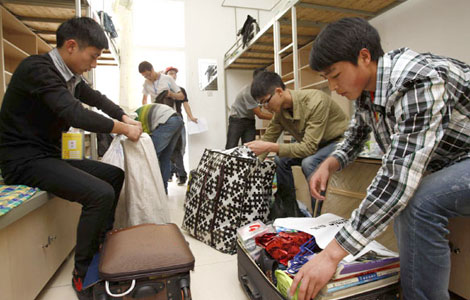
|

|

|

|

|

|
Today's Top News
Phone bookings for taxis in Beijing
Chinese consumers push US exports higher
Seoul delivers ultimatum to DPRK
Boston bombing suspects intended to attack NYC
No let up in home price rises
Bird-watchers undaunted by H7N9 virus
Onset of flood season adds to quake zone risks
Huawei 'not exiting US market'
US Weekly

|

|
